Celebrate the beginning of your marital journey with the time-honored tradition of a Vedic Wedding Ceremony, rooted in the wisdom of ancient scriptures. A Vedic wedding is not only a physical union of two individuals but also a spiritual and emotional bond, sanctified by divine forces. Our Vedic wedding services offer a deeply meaningful and auspicious ceremony, ensuring that your marriage begins on a foundation of love, harmony, and mutual respect.
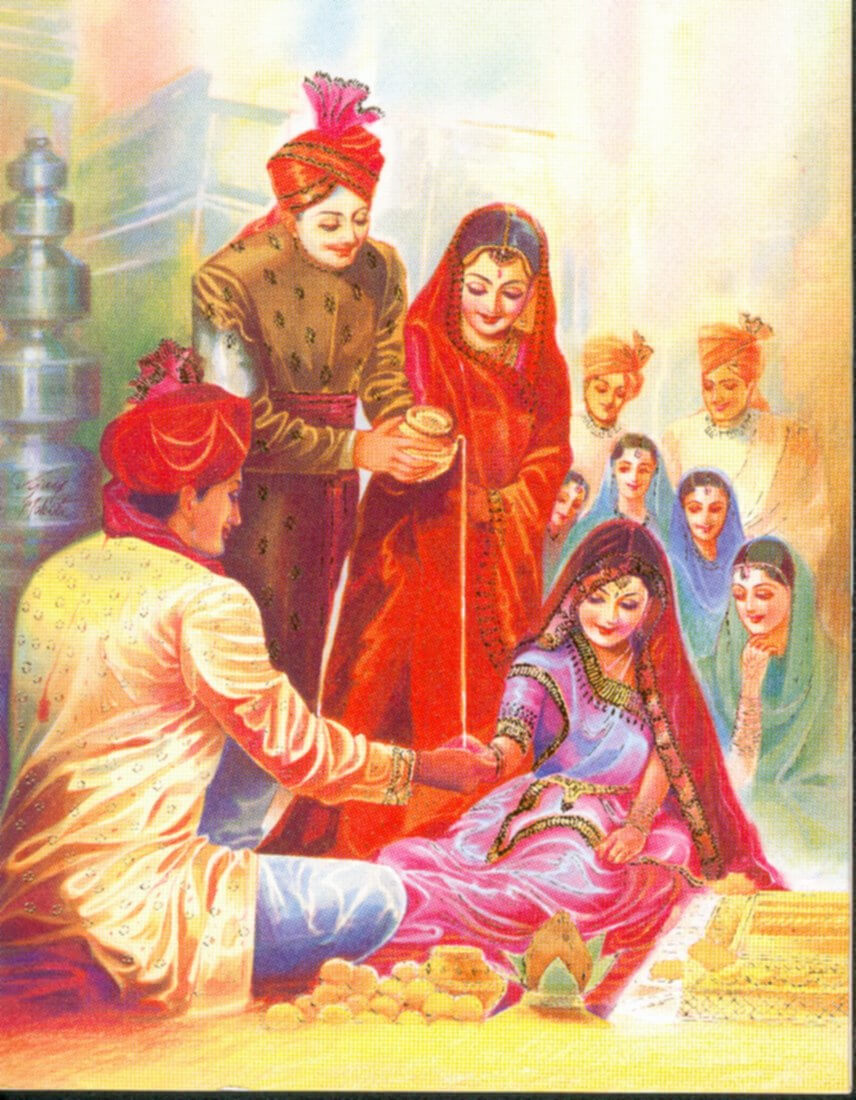
Here’s what we offer as part of our Vedic Wedding Services:
1. Ganapati Puja (Invocation of Lord Ganesha)
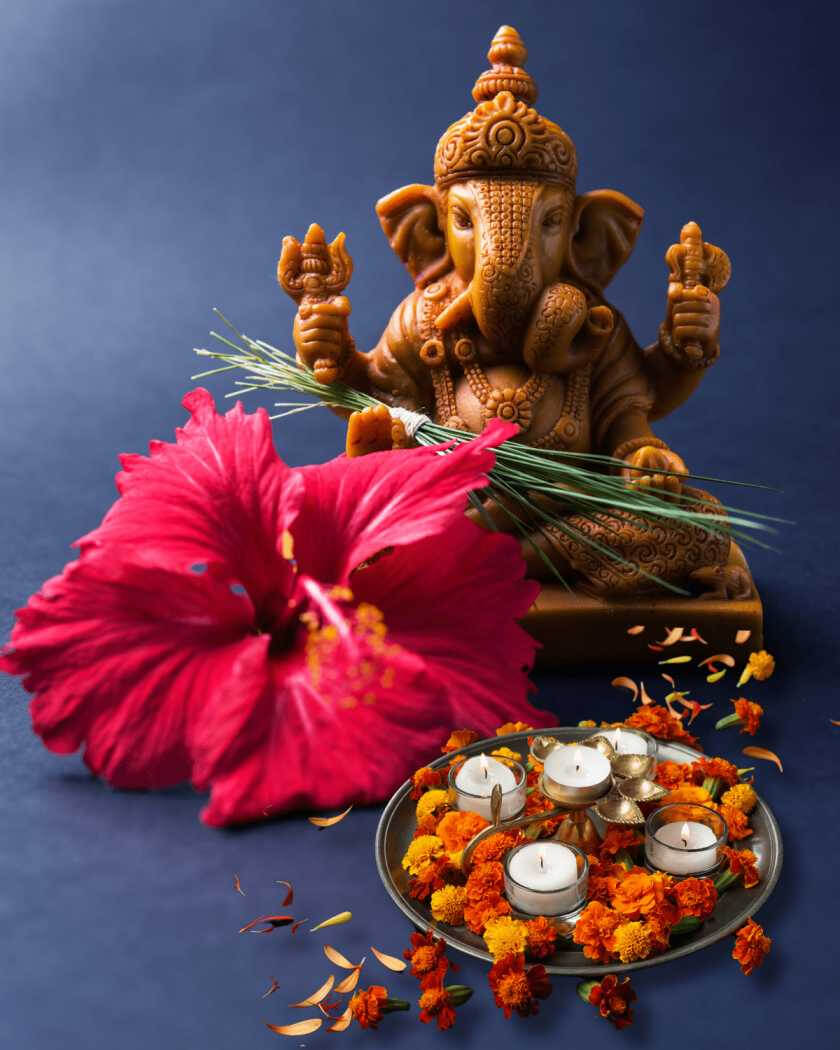
- Purpose: The ceremony begins with prayers to Lord Ganesha, the remover of obstacles and the god of new beginnings. This ritual ensures that the wedding and the couple’s married life are free from obstacles and challenges.
- Benefit: Lord Ganesha’s blessings bring auspiciousness, protection, and smooth transitions as the couple embarks on their journey together.
2. Kanyadaan (Giving Away of the Bride)
- Purpose: The Kanyadaan is one of the most emotional and sacred parts of the wedding, where the bride’s parents give their daughter’s hand in marriage to the groom, symbolizing the transfer of responsibility and care.
- Benefit: This ritual highlights the significance of family bonds, ensuring the couple receives the blessings of their ancestors and elders for a prosperous and harmonious life together.
3. Vivah Havan (Sacred Fire Ceremony)
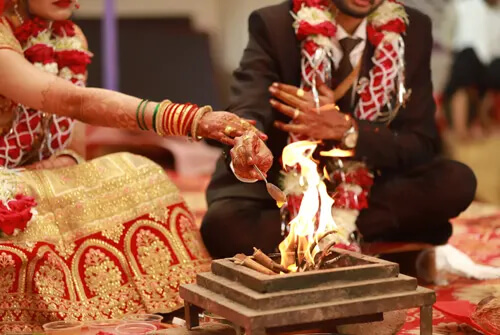
- Purpose: The sacred fire, or Agni, is invoked to witness the marriage and to bless the couple. Offerings of ghee and herbs are made into the fire while ancient mantras are chanted, symbolizing purity, sacrifice, and the couple’s commitment to one another.
- Benefit: The fire acts as a divine witness, ensuring that the couple’s vows are sealed in the presence of higher cosmic energies. The purification from the Havan also brings spiritual cleansing and protection for the couple's union.
4. Mangalashtakam and Sankalpa (The Marriage Vows)
- Purpose: The couple recites their wedding vows during the Mangalashtakam, making solemn promises to support each other in joy and sorrow, health and illness, wealth and poverty, and in their spiritual journeys.
- Benefit: These vows solidify the couple's emotional, physical, and spiritual commitment to one another, providing a framework for a strong and resilient partnership.
5. Saptapadi (The Seven Sacred Steps)
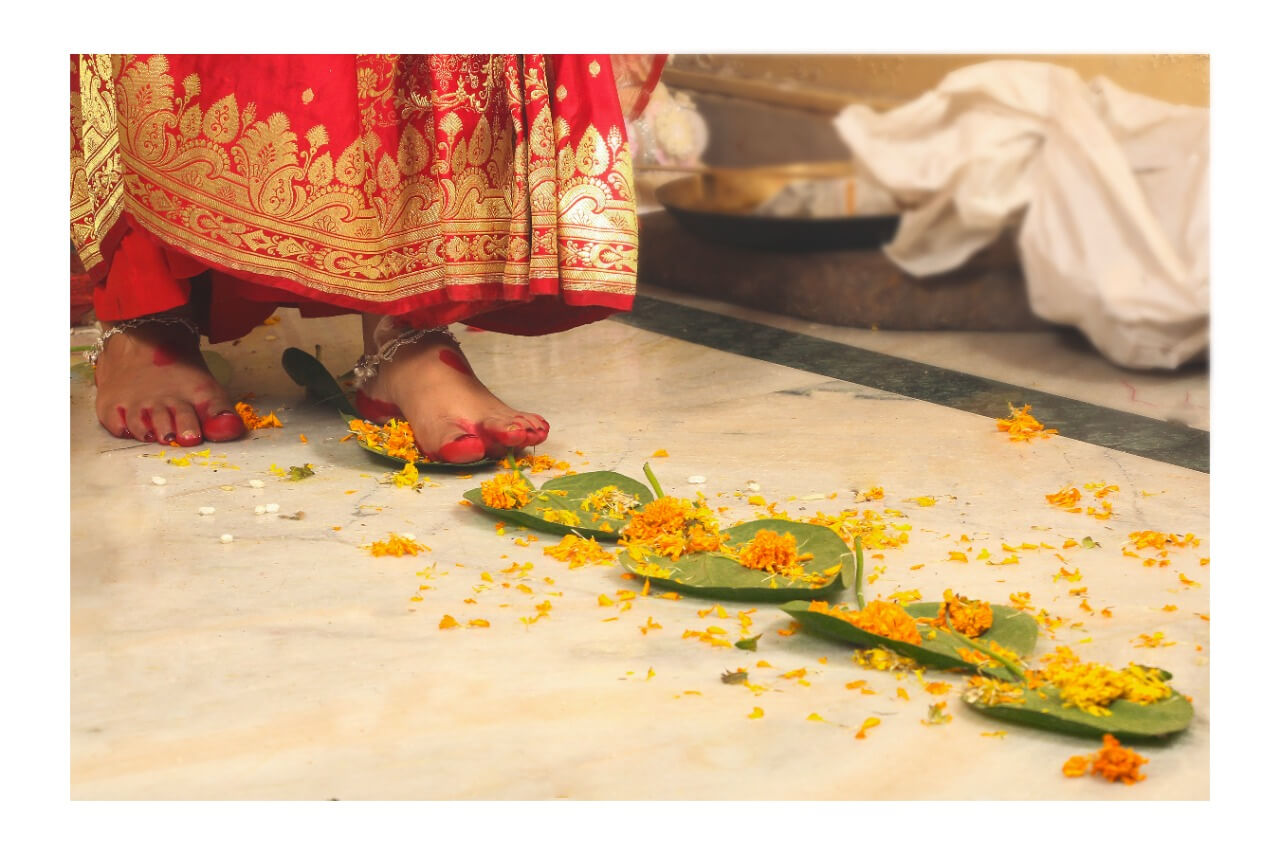
- Purpose: The couple takes seven steps around the sacred fire, each step symbolizing a vow for a successful marriage. The seven vows include promises of nourishment, strength, prosperity, happiness, progeny, health, and lifelong friendship.
- Benefit: This is the most significant part of the wedding, as each step strengthens the couple’s bond, ensuring mutual respect, growth, and shared responsibilities in their married life.
6. Sindoor and Mangalsutra (Symbol of Marriage)
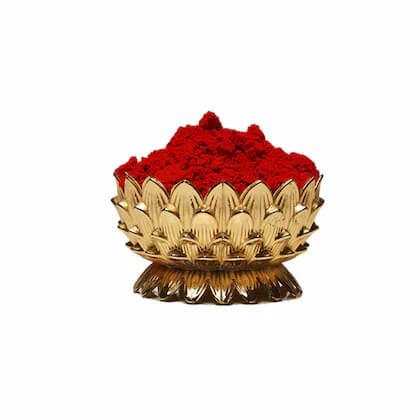
- Purpose: The groom applies sindoor (vermilion) on the bride’s forehead and ties the mangalsutra (sacred necklace) around her neck. These are symbols of the bride’s married status and are worn throughout her life.
- Benefit: The application of sindoor and the tying of the mangalsutra signify the couple’s commitment to protecting and nurturing each other. These sacred symbols also invoke divine blessings for a long and healthy marriage.
7. Ashirvada (Blessings from Elders)
- Purpose: The wedding concludes with the couple seeking blessings from elders and guests, ensuring they receive the collective goodwill and divine grace for a prosperous future.
- Benefit: The blessings from elders impart wisdom, strength, and the grace of ancestors, fostering a harmonious and supportive environment for the couple's future life together.
8. Griha Pravesh (Entry into the New Home)
- Purpose: Once the wedding rituals are complete, the bride is welcomed into her new home with a Griha Pravesh ceremony. This ritual symbolizes the beginning of the couple’s new life together.
- Benefit: The Griha Pravesh ritual ensures that the new home is filled with auspicious energy, blessings, and prosperity as the couple starts their married life in harmony.
Additional Services:
- Customized Rituals: Each wedding is unique, and we work with you to incorporate specific rituals or traditions based on your cultural and familial preferences.
- Pre-Wedding Rituals: We offer pre-wedding services such as Mehendi, Haldi (Turmeric Ceremony), and Sangeet, as per your requirements, blending tradition with modern celebrations.
- Post-Wedding Rituals: Continue the celebration with post-wedding rituals like Vidaai (farewell of the bride) and Satyanarayan Puja, a prayer for the prosperity of the newlyweds.
Benefits of a Vedic Wedding:
- Spiritual Union: A Vedic wedding is a spiritual journey that connects the couple on a soul level, invoking divine blessings for lifelong companionship.
- Harmony and Balance: The rituals are designed to bring harmony between the couple and the cosmic forces, ensuring peace and prosperity in their married life.
- Family and Community Blessings: The participation of family members and elders in these rituals strengthens the bond between the couple and their families, creating a strong support system.
- Sacred Vows: The vows taken in the presence of fire and divine energies foster deep commitment and mutual respect, laying a strong foundation for a successful marriage.
- Cultural Heritage: By following Vedic traditions, you are preserving your cultural heritage and passing it on to future generations, fostering a sense of pride and connection to your roots.
Our experienced priests and coordinators are dedicated to guiding you through every step of the process, ensuring that the rituals are performed with precision, devotion, and reverence. We provide all the necessary materials and work with you to create a seamless, meaningful, and memorable experience.
Let your wedding be more than just a ceremony—let it be a sacred celebration of love, unity, and divine blessings, rooted in the ancient wisdom of Vedic traditions.

